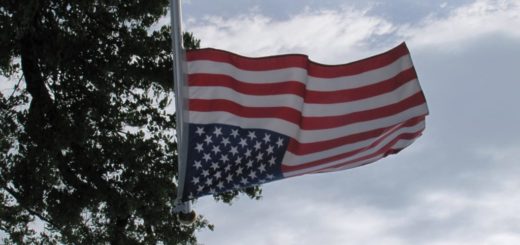Rebels Against Freedom
Throughout this Pandemic that Ate a Planet, I have made a fairly concerted effort to avoid reading “opinion pieces” on the subject from anywhere around the world, including those whose authors appear to be nominally on the right side of history, i.e., against the universal enslavement that is currently being passed off as “safety,” “community,” and “protecting the elderly.”
Yesterday, quite by accident, I stumbled upon the first cogent and completely honest assessment of the current situation that I have seen from anywhere beyond the confines of Limbo. (I qualify that by noting that I include my wisest friends and regular reader-correspondents as being within the confines of Limbo.) Needless to say, this shining exception did not come from a prominent political commentator — I have no time for them, know what motivates them, regard their “insights” as utterly derivative and skin deep, and frankly have more serious things to do with my time than waste it in their echo chamber or commercially-packaged confirmation bias amusement park. Nor did my pleasant surprise come in the form of someone simply agreeing with my own judgment. As I said, I am not looking for an echo chamber, or for the comfort of external affirmation.
Instead, the most cogent and honest public assessment of the situation that I have seen, at least from an American, came from — wait for it — a New York film critic.
Armond White, whose criticism I had been reading semi-regularly for decades (literally decades) before he recently became, to my amusement, John Simon’s ultimate replacement at National Review, has a perspective on film and popular music that can only be regarded as iconoclastic, and might best be labelled “populist-elitist.” He tends to like films that mainstream audiences never see, but at the same time to hate the ones that mainstream critics praise as “groundbreaking” or “important.” On the other hand, he sometimes defends precisely the best popular entertainers — most notably Steven Spielberg — against the universal disdain of his “serious” critical peers. Then again, he has moved from skepticism to downright anger towards Spielberg’s “mature” period, in which the director has (as White justly argues) sold out the personal vision of his best (and most crowd-pleasing) films for Oscar-baiting “respectability” and progressive Hollywood acceptance.
White has also been a champion of certain pop music trends — punk, rap, hip-hop — as significant political statements (a point on which I usually disagree with him strongly).
Agree or disagree, however, one thing he has never been is a glorified salesman or commercial “movie reviewer,” flattering public opinion and jumping on politically correct bandwagons to make a name (and a buck) for himself. You will not see him quoted on movie posters. He does not rate films with stars or popcorn boxes or thumbs. He writes in a style so baroque that at times one feels he is deliberately composing cryptograms rather than art criticism. And that, in a nutshell, is what I like about him, and always have, since my student days. He doesn’t give a damn about being an insider, sucking up to celebrities, fitting in with the progressive elite, or getting a big TV gig. He immerses himself in his subject matter and its history, and filters every judgment through reflections on cultural and political meaning and developments.
A measure of my longtime enjoyment of White’s iconoclasm may be found in the fact that it has been many years since I saw any of the movies he reviews, or felt any inclination to do so. I hate modern movies in general. I read White these days, when I do, strictly for the culture criticism and personal style.
So imagine my delight when I took a short break from work yesterday to see if he had any new reviews to read, and discovered that he had found a way to shine his critical gaze on his fellow New Yorkers during this totalitarian surrender phase of U.S. history. Framing his column as a musing on a pop music video from a few years ago called “Singularity” (song and singer unknown to me), which featured footage of non-compliant East Germans before the fall of the Berlin Wall, White created a perfect literary “matching shot,” cutting to the scene in his own neighborhood today, where wealthy liberal New Yorkers are opening their windows every evening at 7pm to bang pots in salute to “first responders.”
“Talk about propagandized sheep,” I thought as I read that description. And then, right on cue, White did exactly that, summarizing the mainstream American citizen of today more incisively than any of the famous or would-be famous political commentators (the experts) of the moment.
Here is a typical blast from the piece, my favorite bit:
The protests in Singularity haven’t yet happened in the U.S., tensely considering the reopening of the economy, but the fever of fed-upness (a better term than the now discredited “resistance”) indicates some underlying exasperation such as is inchoately expressed by the 7 p.m. bourgeois ritual. Singularity throws images of liberation back at a nation of sheeple. Baaing people. Applauding people. They really seem to be congratulating themselves for their own helplessness, for upholding government edicts during the clampdown, keeping quiet, and waiting all day for that brief moment when they can pretend to appreciate other people’s sacrifice. The typical liberal impulse is to mistake self-congratulation for altruism. A populace that disguises its own lack of self-awareness as gratitude demonstrates the essence of conformity and surrender.
“Congratulating themselves for their own helplessness.”
Bingo, as my great friend Tony Bauer from Minnesota likes to say.
This is everything Tocqueville meant by soft despotism, and then some. America is hardening.


